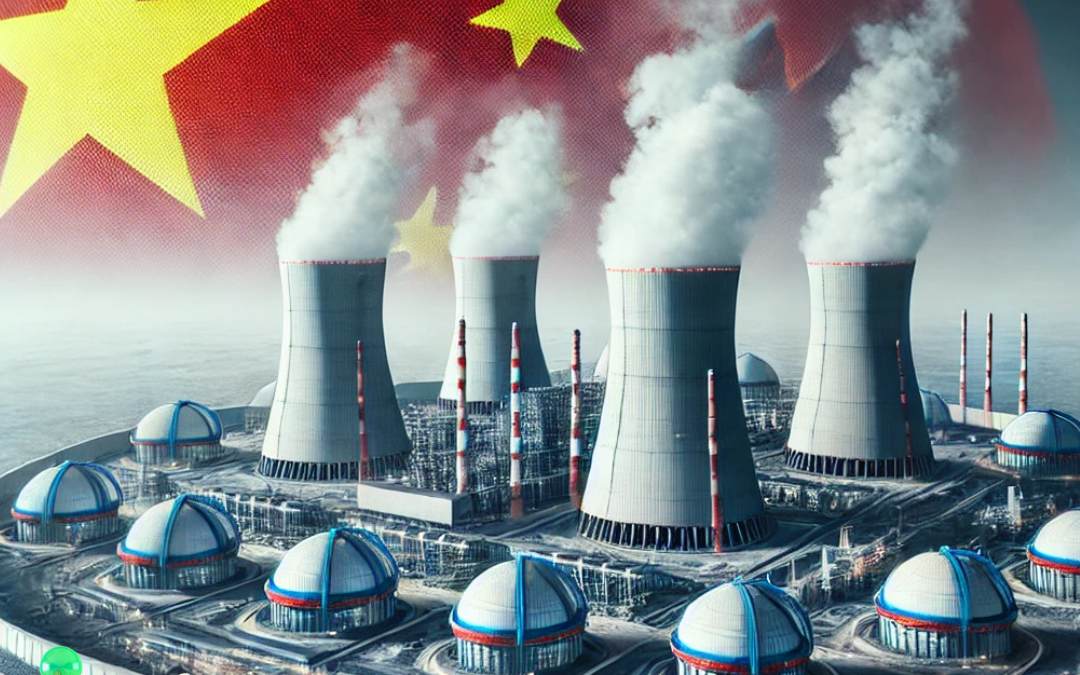
- China launched its first steam-supply project for industrial use, Heqi-1, within the Tianwan nuclear power plant in Jiangsu province, aiming to supply over 4.8 million tonnes of steam annually to the Lianyungang petrochemical plant.
- The project uses steam from units 3 and 4 of the Tianwan plant, transferring it via a 23 km pipeline to the petrochemical plant, highlighting a collaboration for clean energy solutions.
- Heqi-1 is expected to significantly reduce carbon emissions by cutting coal burning by 400,000 tonnes annually and reducing CO2 emissions by 1.07 million tonnes, marking a shift towards renewable energy in China.
On June 20th, China embarked on a significant milestone in its energy journey with the launch of the country’s first steam-supply project for industrial use, Heqi-1. This project, a joint endeavor between the Jiangsu Nuclear Power Company (a subsidiary of the China National Nuclear Corporation) and the Lianyungang Petrochemical Industry Base, operates within the Tianwan nuclear power plant in the Jiangsu province. The aim is to supply over 4.8 million tonnes of steam annually to the Lianyungang petrochemical plant, a testament to the power of collaboration in the pursuit of clean energy solutions.
The Tianwan nuclear power plant has four steam conversion devices that allow it to produce industrial superheated steam with a pressure of 1.8 MPa and a flow rate of 600 tonnes per hour. The Heqi-1 project will extract steam using the secondary circuits of units 3 and 4 (Russian-supplied VVER-1000 units) at the Tianwan nuclear power plant. Once the steam is extracted, it will be transferred through an above-ground insulated pipeline that stretches 23 km to the Lianyungang petrochemical plant.
The Heqi-1 project signifies a monumental shift in China’s energy landscape, heralding a new era of renewable energy alternatives. As a nation on the rise, China has historically relied on coal and natural gas, resulting in significant greenhouse gas emissions. However, with the advent of the Tianwan nuclear power plant and projects like Heqi-1, regions like the Jiangsu province can anticipate substantial reductions in carbon emissions. The Tianwan nuclear power plant is projected to curtail standard coal burning by 400,000 tonnes annually, equating to a staggering emission reduction of 1.07 million tonnes of carbon dioxide. This expansion of the Heqi-1 project is a testament to China’s pioneering spirit in the realm of green energy, supporting industrial growth while minimizing environmental impact.
The initiative underscores China’s commitment to transitioning from fossil fuels to clean energy sources, helping mitigate the effects of industrialization on the environment and setting a precedent for new renewable energy projects.

